News Archive
Filter by Division
Filter by Categories
The Human Connection Behind Every Draw
February 9, 2026 /Honoring U‑M Phlebotomists During Phlebotomy Recognition Week 2026
U-M & Kenya Collaboration Receives CGHE Impact Accelerator Grant to Advance Digital Pathology
February 5, 2026 / FacultyThe University of Michigan’s Center for Global Health Equity has awarded an Impact Accelerator Grant to a U-M–Kenya collaboration focused on improving digital pathology quality and diagnostic accuracy, led by Dr. Ulysses G. J. Balis with Dr. Kamran Mirza as co-investigator.
Targeting a metabolite as a therapy for childhood ependymomas
February 4, 2026 / Cancer ResearchA new study published in Nature by Dr. Sriram Venneti’s laboratory at the University of Michigan’s Department of Pathology and the Chad Carr Pediatric Brain Tumor Center has identified a surprising driver of ependymoma growth: a molecule called itaconate. The discovery opens the door to new therapeutic strategies for this aggressive childhood cancer.
Kleer Lab Receives Dynami Foundation Donation
January 30, 2026 / Cancer ResearchDr. Celina Kleer, Harold A. Oberman Collegiate Professor of Pathology, received a generous donation from The Dynami Foundation to study invasive lobular carcinoma of the breast. The Dynami Foundation recognized Dr. Kleer as an exceptional breast cancer researcher with over 20 years of experience.
Parolia Lab Receives Grant to Fund New Pediatric Cancer Research
January 27, 2026 / ResearchParolia Lab to expand its research into Ewing Sarcoma with grant funding from Alex’s Lemonade Stand.
Serving Veterans, Advancing Medicine: Meet New U-M and VA Faculty Member Dr. Kelsey Hummel
January 26, 2026 / Faculty SpotlightTanks, Transfusions, and Tarantulas: Meet Kai Rogers, MD, PhD
January 20, 2026 / Faculty SpotlightDrs. Chan and Bresler Co-authored New AFIP Fascicle
January 8, 2026 / DermatopathologyFrom Tumor Slides to Terrariums: Dr. Akriti Gupta Puts Down Roots in Michigan
December 15, 2025 / Faculty SpotlightInside a Transition: Building Purpose and Partnership in Clinical Pathology
December 8, 2025 / Faculty SpotlightBuilding the Future of Genomics: Dr. Jaeseung Kim Joins U-M Pathology
December 4, 2025 / Faculty Spotlight24th Annual Pathology Research Symposium a Resounding Success
November 14, 2025 / McpThe 24th Annual Pathology Research Symposium, held on Friday, November 7th, was a resounding success! The auditorium was filled with graduate students, faculty mentors, and others interested in learning more about the exceptional work being performed by our students.
Dr. Madelyn Lew Changing Medical Education for Michigan Medical Students
November 13, 2025 / EducationDr. Madelyn Lew was recognized with the Lifetime Achievement in Medical Education Award.
Seeing the Enemy
November 12, 2025 / Breast CancerMichele Mitchell's Journey from Diagnosis to Discovery and Beyond
Drs. Ali-Fehmi and Mehra Named to Hour Detroit’s 2025 “Top Docs” List
November 5, 2025 / AwardCongratulations to Dr. Rouba Ali-Fehmi and Dr. Rohit Mehra for being named among Hour Detroit magazine’s “Top Docs” of 2025.
Turning Pages, Changing Lives: Dr. Simon Warren’s Path from Literature to Dermatopathology
November 3, 2025 / DermatopathologyFrom Health Lab: RNA modifications control how stem cells develop into retinal cells
October 31, 2025 / ResearchRNA modifications control how stem cells develop into retinal cells. Study uncovers METTL3’s role in tissue development, which was previously unexplored
From Health Lab: Additional testing can improve kidney cancer diagnosis
October 30, 2025 / MctpA study from the University of Michigan Health Rogel Cancer Center and Department of Pathology shows that further testing in renal cell carcinoma with an overexpression of gene TRIM63 could uncover a mutation otherwise undetected, leading to more treatment options for patients.
Rooted in Science, Growing in Michigan: The Story of Dr. Xiaoming (Mindy) Wang
October 29, 2025 / Faculty SpotlightLanbo Xiao, PhD: Research Faculty Recognition Award
October 28, 2025 / AwardDr. Lanbo Xiao, a research assistant professor in the Center for Translational Pathology, received a 2025 Faculty Award in recognition of his exceptional contributions to cancer research, teaching, and service. His pioneering work in chromatin remodeling and epigenetic regulation has led to new insights in cancer therapy and significant advances in public health diagnostics.
Welcome Back: Dr. Nicholas Nuechterlein Joins U-M Faculty
October 22, 2025 / Faculty SpotlightFrom Health Lab: Researchers find a targeted approach to shut down prostate cancer growth
October 20, 2025 / CancerFrom Patient Mysteries to Breakthroughs: Dr. Kejian Zhang’s Lifelong Mission
October 15, 2025 / Faculty SpotlightDr. Kamran Mirza & Michele Mitchell on The Pathologist's Power List 2025
October 8, 2025 / AwardsSummer Medical Laboratory Immersion Internship
October 6, 2025 / Mls InternshipThis summer, the Department of Pathology piloted a Summer Medical Laboratory Immersion Internship with two undergraduate students.
Passing the Torch: Dr. Cooling’s Farewell and the Future of Blood Banking at Michigan
September 30, 2025 / Faculty SpotlightImplementing Sustainable Practices in the HLA Lab
September 30, 2025 / HlaThis October, Erin Gumpper, MLS (ASCP), and Colleen Mackey, MLS (ASCP) of the Histocompatibility Laboratory will present at the ASHI Conference in Orlando, Florida, on the topic of sustainability in the HLA Lab.
Dr. Annette Kim recognized as CAP Laboratory Improvement Programs Service Award Winner
September 25, 2025 / AwardsAnnette S. Kim, MD, PhD, FCAP, received the prestigious 2025 CAP Laboratory Improvement Programs Service Award in recognition of her transformative leadership as the vice-chair of the Personalized Health Care Committee (PHC).
Staying for the Science and the Scenery: Dr. Rob Humble's Michigan Story
September 24, 2025 / Faculty SpotlightResident Meredith Herman Recognized as the CAP Junior Member of the Year
September 23, 2025 / AwardOn September 14, 2025, Dr. Meredith Herman, Pathology House Officer III, was awarded the College of American Pathologist’s (CAP’s) Junior Member of the Year award, which is given to one resident or fellow annually who has made exceptional contributions to the field through leadership, advocacy, mentorship, and service. This award reflects the CAP’s commitment to supporting the next generation of pathologists and recognizing the impact residents can have on the specialty, even early in their careers.
Welcome Our New Fellow: Bayan Alquran, MD
September 17, 2025 / Transfusion MedicineDr. Analisa DiFeo Receives 2025 MICHR Distinguished Clinical and Translational Research Mentor Award
September 15, 2025 / CancerU-M Pathology at CAP!
September 10, 2025 / ConferencesFaculty and trainees from U-M Pathology are in Orlando this weekend for the College of American Pathologists Annual Meeting, sharing their expertise through lectures, posters, and breakout sessions. The schedule features numerous presentations and recognitions, highlighting the department’s contributions and achievements.
Meet Our First Year Residents: Nico Gomez, MD, PhD
September 8, 2025 / ResidentsMeet Our First Year Resident: Sara Tweedy, MD, PhD
September 2, 2025 / ResidentsMeet Our First Year Resident: Alexander Silver, MD, PhD
August 26, 2025 / ResidentsMeet Our New Residents: Caleb Vogt, MD, PhD
August 20, 2025 / ResidentsMeet Our First-Year Resident: Chelsea Yu, MD
August 19, 2025 / EducationMeet our First Year Residents: Gabe Kramer, MD
August 15, 2025 / ResidentsMeet our First Year Residents: Dowon Kim, MD
August 13, 2025 / ResidentsFDA Approves First-Ever Drug for a Rare and Aggressive Brain Cancer
August 13, 2025 / ResearchResearch from Sriram Venneti, MD, PhD and Carl Koschmann, MD led to FDA approval of a drug treatment for diffuse midline glioma.
Sanjana Eyunni Becomes Dr. Sanjana Eyunni
August 11, 2025 / Phd ProgramFor decades, cancer has been primarily viewed as a disease caused by genetic mutations, but Molecular and Cellular Pathology (MCP) graduate student Sanjana Eyunnis' research is expanding this perspective. Her thesis research, published in her dissertation, Chimeric AR Motifs and Neo-Enhancer Expansion in Prostate Cancer Development, presents the first evidence of FOXA1-driven prostate adenocarcinoma formation in mouse models and further substantiates the structural classification of distinct FOXA1 alterations within its coding region or genomic locus.
Meet our First-Year Resident: Adam Berry, DO
August 7, 2025 / ResidentsCelebrating 50 years at UMich Path
August 5, 2025 / AnnouncementThe Department of Pathology proudly congratulates Carol Young, Clinical Research Project Manager in Microbiology, on an extraordinary milestone: 50 years of dedicated service at the University of Michigan.
Meet our First-Year Resident: Logan Ballard, MD
August 4, 2025 / ResidentsSecond Annual Department Art Competition: The Art of Pathology
July 28, 2025 /The winners of the second annual Department of Pathology Art Competition, The Art of Pathology.
Brian Basinski becomes Dr. Brian Basinski
July 25, 2025 / Phd ProgramBusy packing up his apartment following his graduation from the Molecular and Cellular Pathology Graduate Program, Brian Basinski, PhD, took a few moments out of his day to share about his journey. Basinski presented his research in his PhD dissertation defense, “Mechanistic Insights into the Function of PRDM13 in Mouse Retinal Organoids,” on June 17, 2025.
From Health Lab: Study reveals mechanisms behind common mutation and prostate cancer
July 24, 2025 / CancerStudy reveals mechanisms behind common mutation and prostate cancer. Researchers discovered two distinct ways mutation of the FOXA1 gene alters tumor formation and therapy resistance in prostate cancer in mouse models.
Aggie Sangotra becomes Agamjot Kaur Sangotra, PhD
July 23, 2025 / Phd ProgramA career in science was not even on the radar when Agamjot Sangotra, PhD, was in high school. English and history were more up her alley, and high school AP biology was not a fun experience. When Sangotra graduated from her New Jersey high school, she attended Rutgers and was unsure of her career path. “I took psychology and biology at the same time. I found the molecular workings of a cell to be fascinating, much more so than psychology. That was one of the first moments where I could see myself in a science career.” She joined a research laboratory and developed a passion for research. “I also volunteered at a hospital for some time, but did not develop the same sort of passion. I much preferred to be working in the lab than in a stressful hospital environment.”
Publication on Diagnosis of Renal Cell Carcinomas Supports Enhanced Patient Care
July 21, 2025 / Kidney CancerOne of the defining characteristics of Michigan Medicine’s Department of Pathology is its commitment to broadly sharing expertise to ensure patients everywhere receive the best care possible. Recently, Pathology faculty, Robert Humble, MD, Rahul Mannan, MD, and Rohit Mehra, MD published an article in Kidney Cancer describing the most recent advances in diagnosing renal neoplasia, including their morphological context, diagnostic algorithm, and available molecular biomarkers to assist pathologists in correctly identifying renal cell carcinomas (RCC) of varying types. In addition, whenever possible, they also provided a brief summary of the current therapeutics that align with each subtype of RCC.
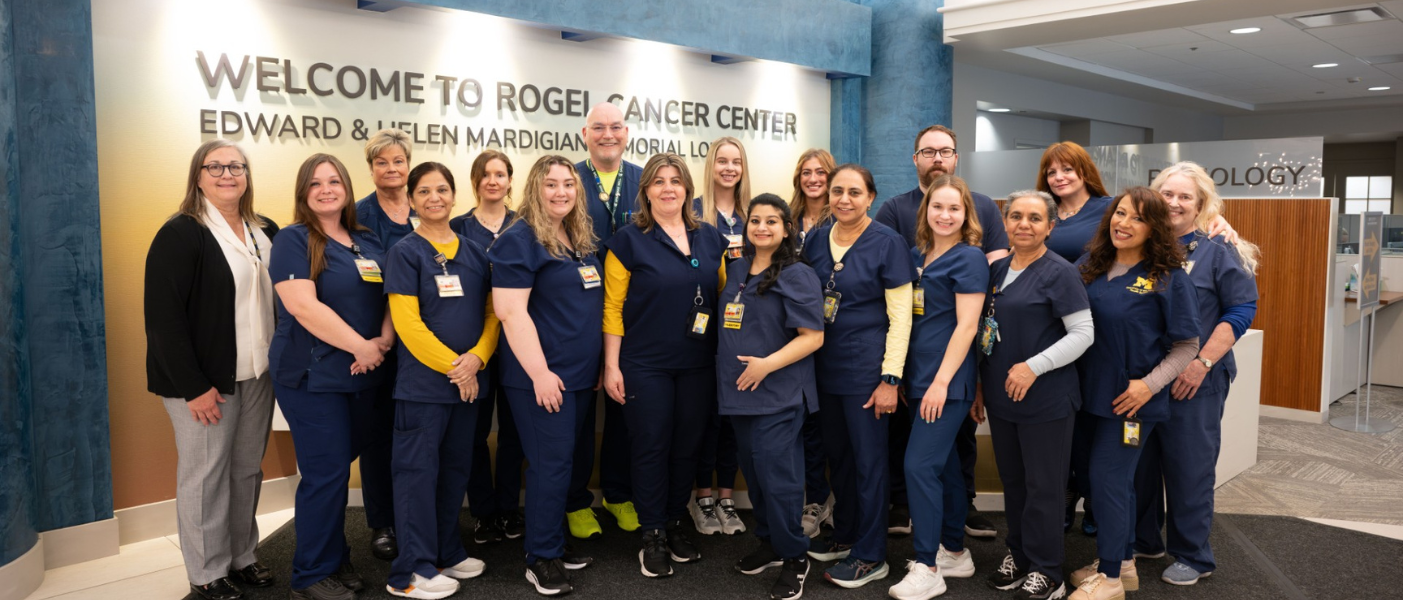
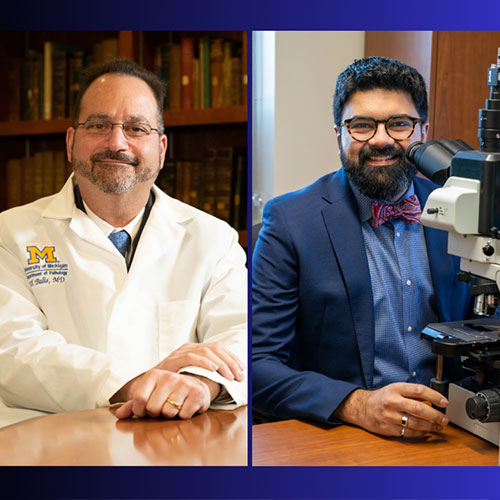
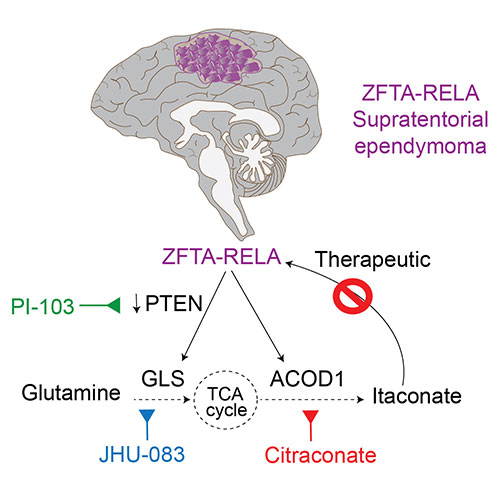
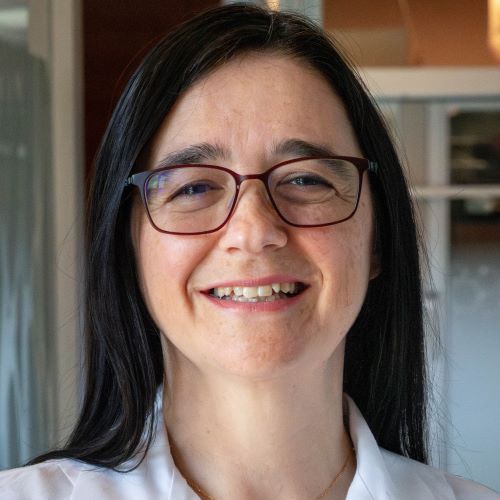



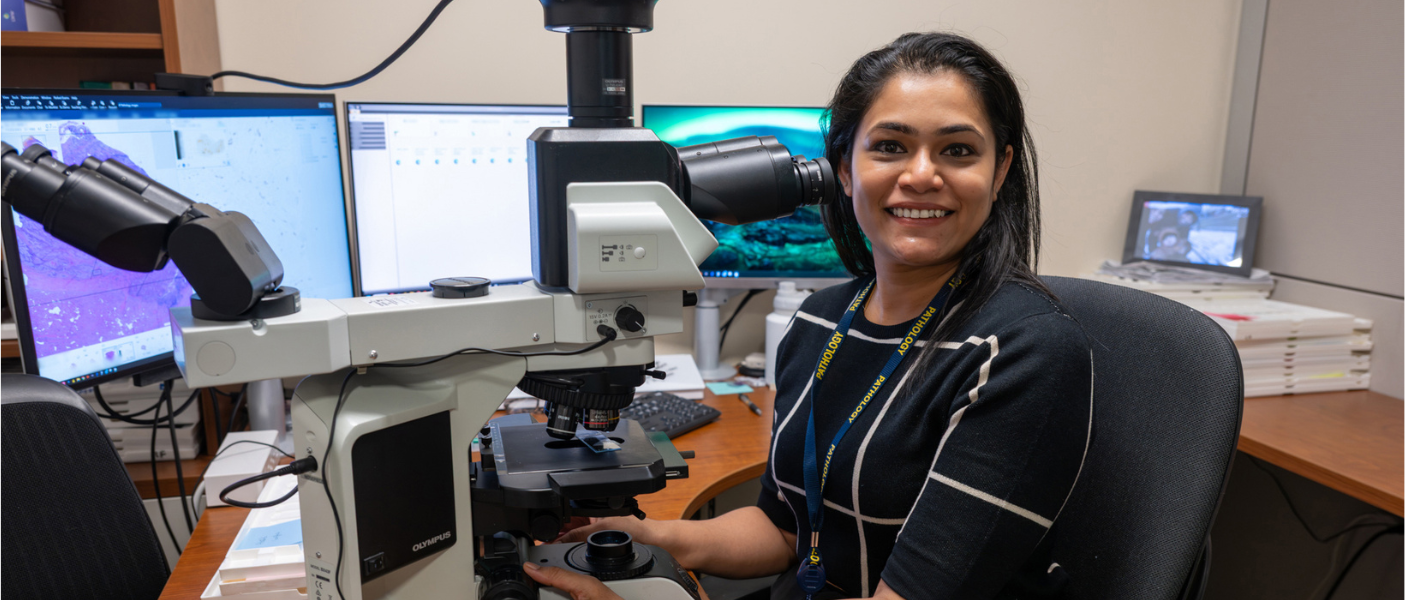

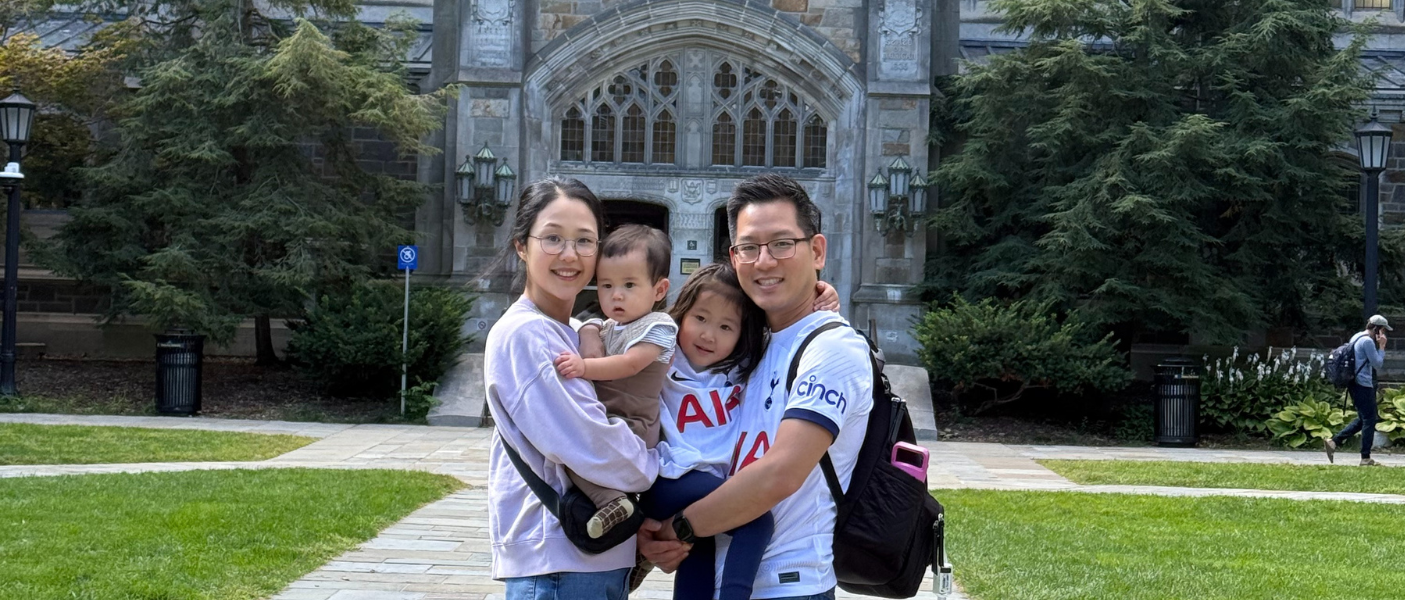
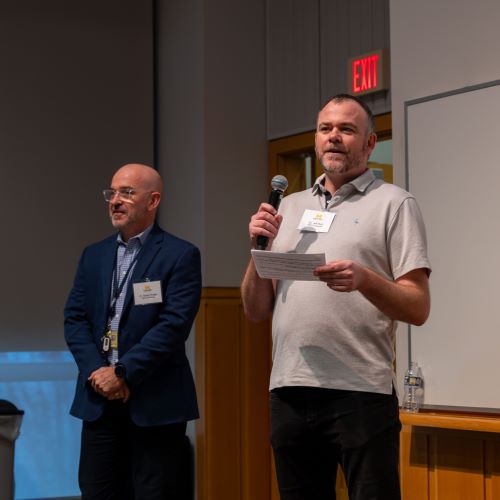
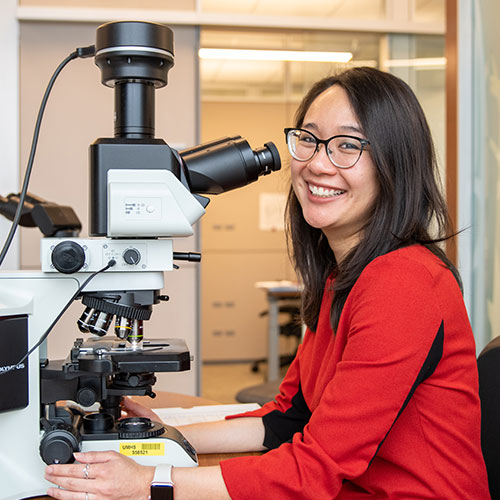


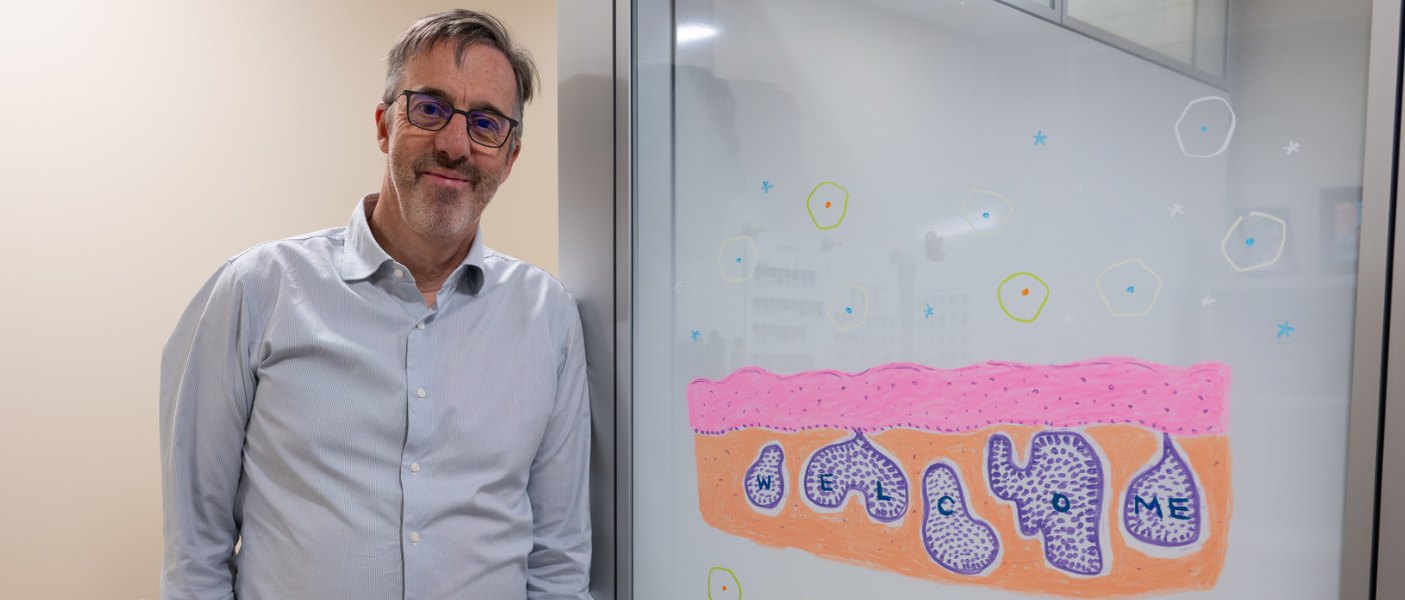


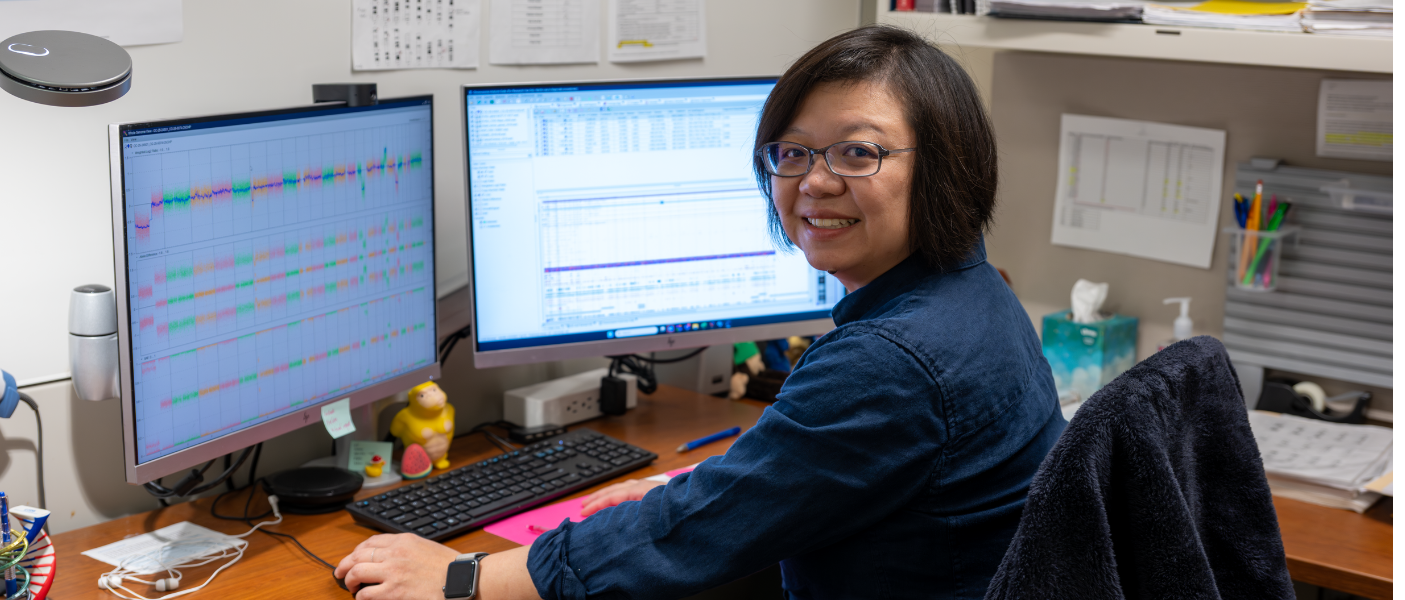


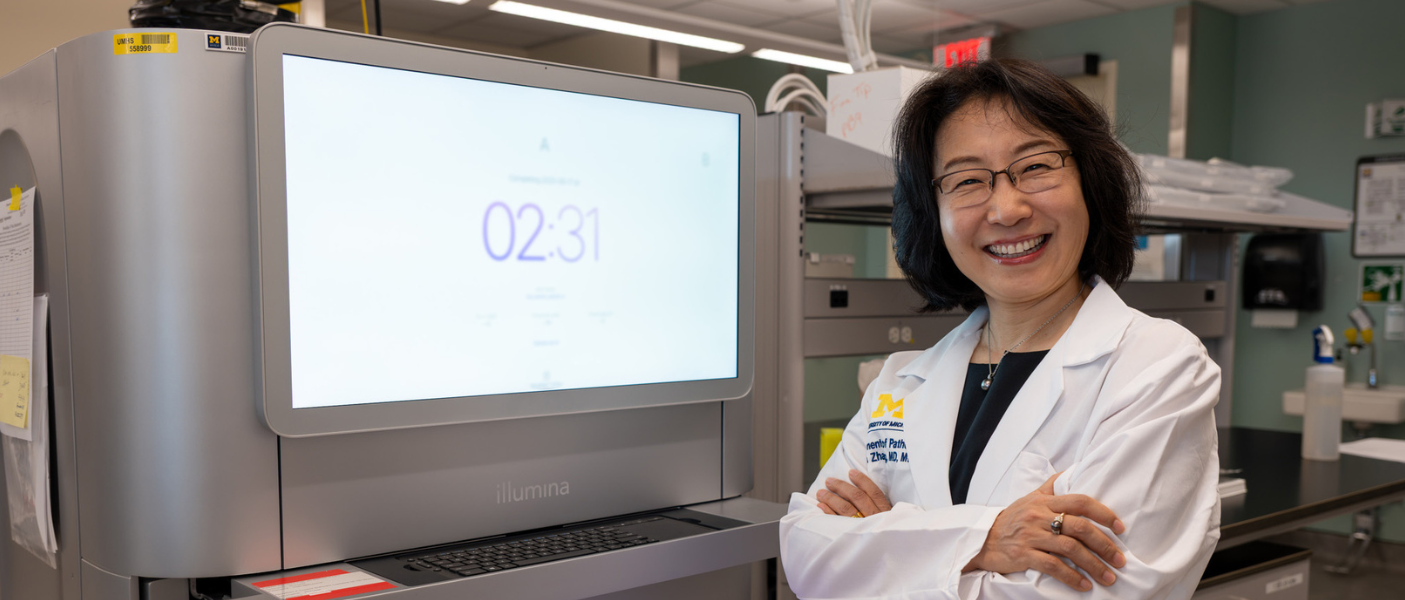


.jpg)
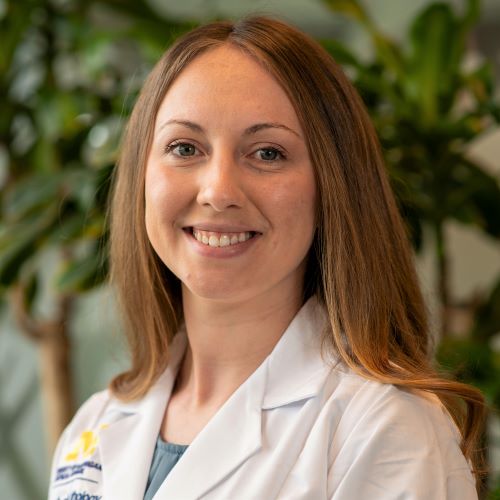




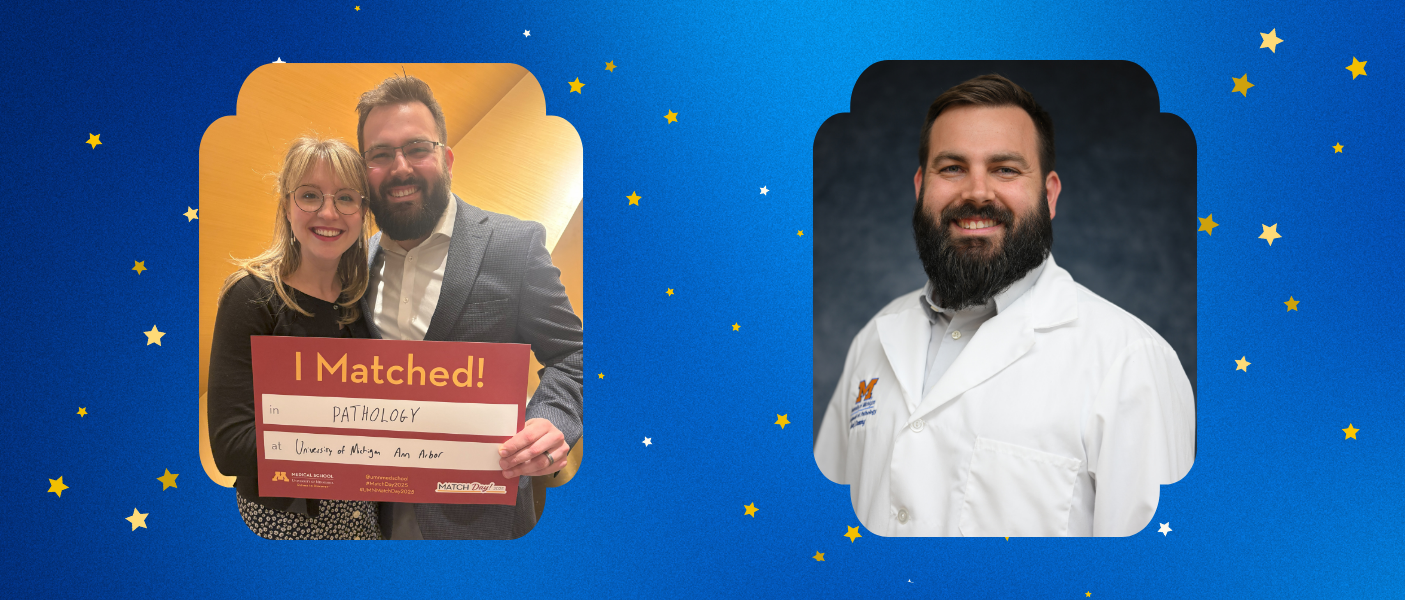
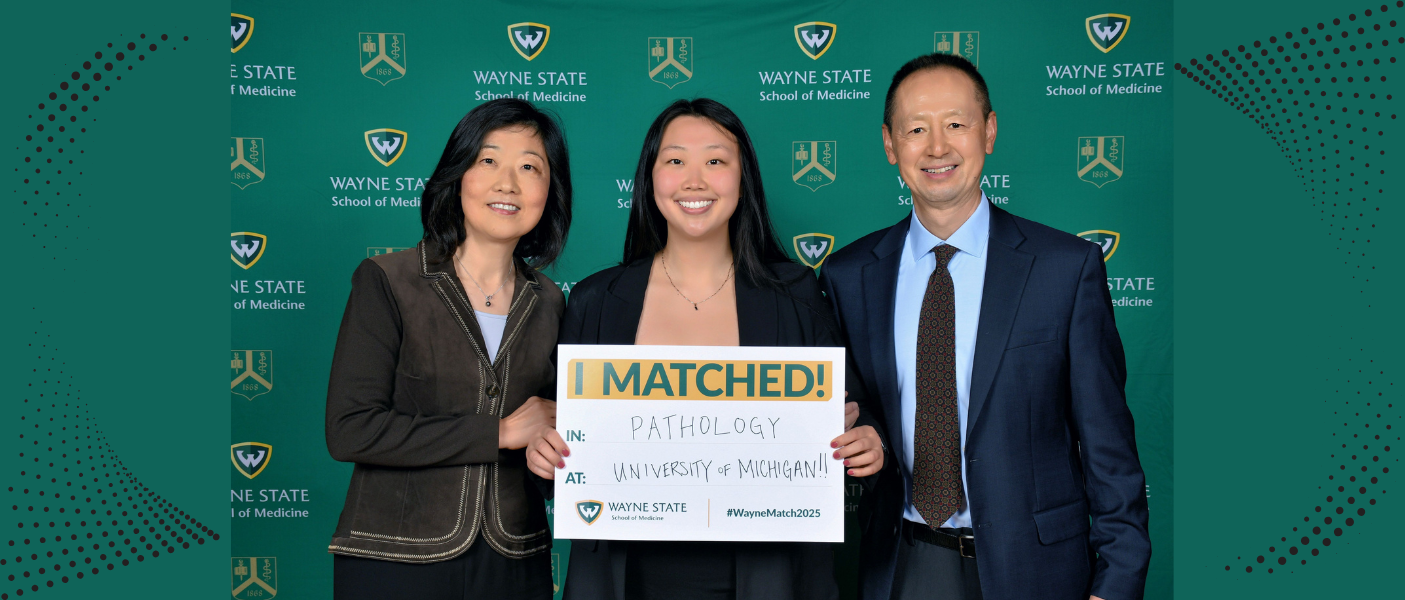








 ON THE COVER
ON THE COVER
 ON THE COVER
ON THE COVER
 ON THE COVER
ON THE COVER
 ON THE COVER
ON THE COVER
 ON THE COVER
ON THE COVER
 ON THE COVER
ON THE COVER
 ON THE COVER
ON THE COVER
 ON THE COVER
ON THE COVER
 ON THE COVER
ON THE COVER
 ON THE COVER
ON THE COVER
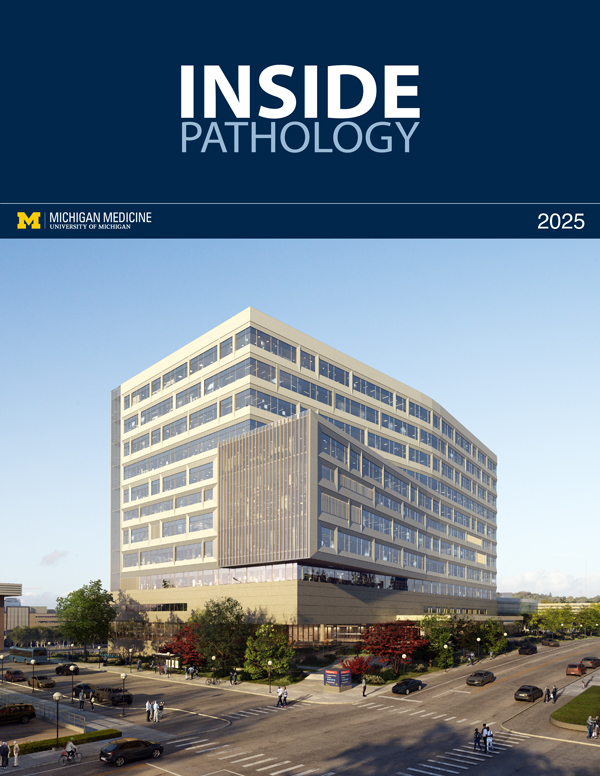 ON THE COVER
ON THE COVER
